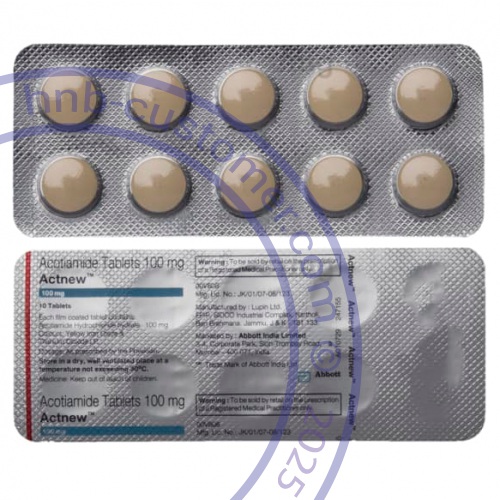Acotiamide tablets
What is this medicine?
Acotiamide is used in the treatment of functional dyspepsia. It helps to relieve the symptoms like bloating after meal, epigastric pain/discomfort and early satiety. Acotiamide increases the release of acetylcholine, a chemical that can increase the motility of the intestine.
Important information
Before using this medicine, be sure to tell your doctor and pharmacist:
- If you have previously experienced any allergic reactions (itch, rash, etc.) to any medicines.
- If you are pregnant or breastfeeding.
- If you are taking any other medicinal products. (Some medicines may interact to enhance or diminish medicinal effects. Beware of over-the-counter medicines and dietary supplements as well as other prescription medicines.)
How should I take this medicine?
If you miss a dose, skip the missed dose and follow your regular dosing schedule. You should never take two doses at one time.
If you accidentally take more than your prescribed dose, consult with your doctor or pharmacist.
Do not stop taking this medicine unless your doctor instructs you to do so.
What side effects may I notice from this medicine?
The most commonly reported adverse reactions include diarrhoea, constipation, nausea, vomiting, rash and hives. If any of these symptoms occur, consult with your doctor or pharmacist.
The symptoms described below are rarely seen as initial symptoms of the adverse reactions indicated in brackets. If any of these symptoms occur, stop taking this medicine and see your doctor immediately.
What may interact with this medicine?
Acotiamide did not inhibit or induce most of the CYP enzymes, indicating a low level drug interaction. Tell your doctor about all medications you use. This includes prescription, over-the-counter, vitamin, and herbal products. Do not start a new medication without telling your doctor. Keep a list of all your medicines and show it to any healthcare provider who treats you.





